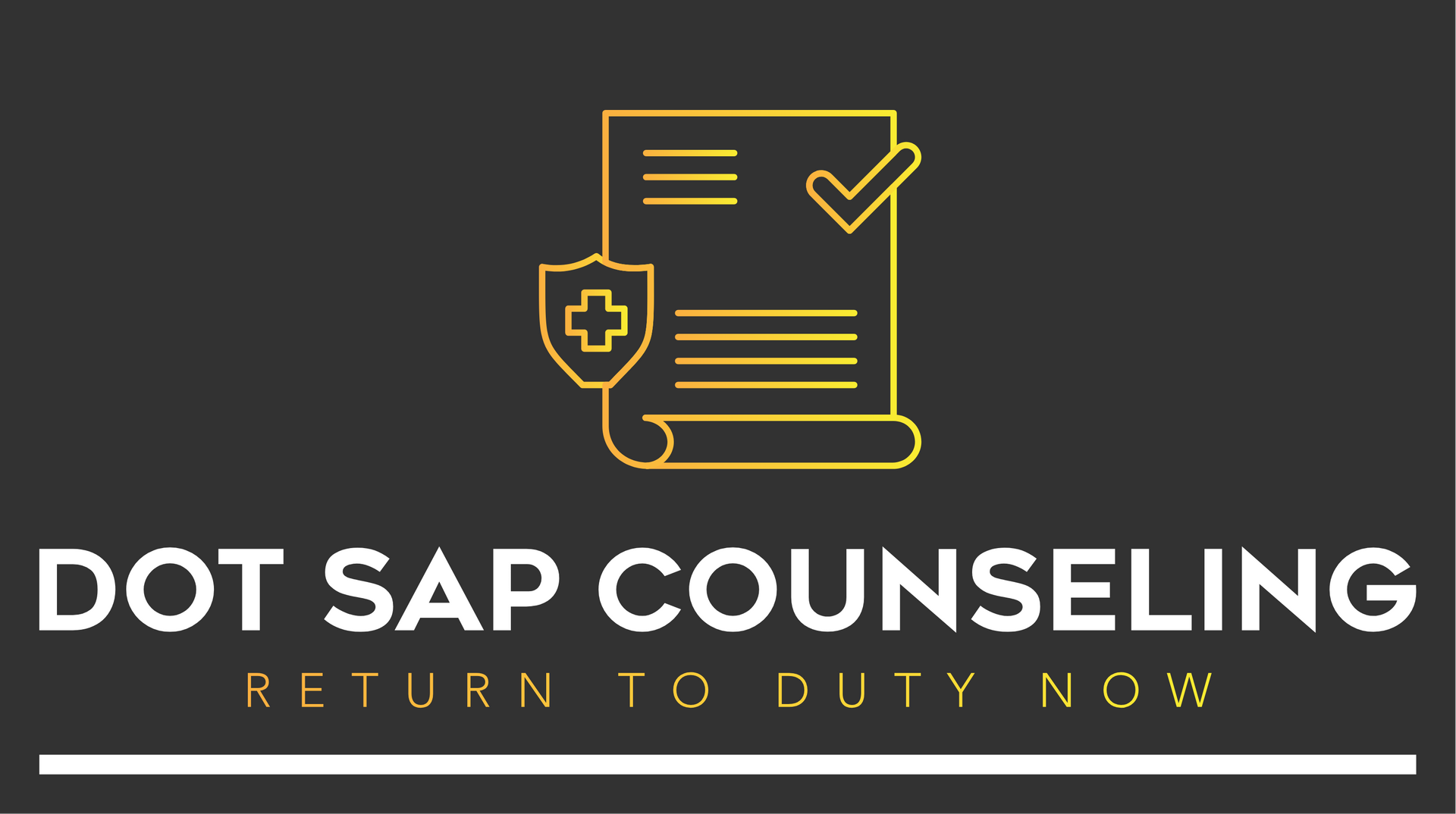The Steps to Successfully Complete Your DOT SAP Evaluation and Return to Duty Plan
Understanding DOT SAP evaluations
DOT SAP evaluations are designed to assess if a safety-sensitive employee is ready to return to work after violating drug and alcohol regulations. The process involves an initial assessment to determine the extent of the issue, followed by recommended treatment and monitoring. The evaluation aims to ensure the individual’s safety and fitness for duty, with the ultimate goal of a successful return to work.
Importance of DOT SAP evaluations
DOT SAP evaluations are crucial for individuals who have violated the Department of Transportation (DOT) drug and alcohol program regulations. They are designed to assess the individual's readiness to safely return to duty and ensure compliance with DOT regulations. The evaluation helps determine if the individual has successfully completed the necessary treatment and is fit for duty. Failure to complete a DOT SAP evaluation and follow the return-to-duty process can result in the loss of a commercial driver's license (CDL) and potential job consequences. It is important to take the evaluation seriously and follow the recommendations provided to ensure a successful return to duty.
Who needs a DOT SAP evaluation?
If you have violated drug and alcohol regulations while working in safety-sensitive positions like commercial truck driving, aviation, or railroad operations, you will be required to undergo a DOT SAP evaluation. This evaluation is necessary to determine if you are fit to safely return to duty. It is crucial for individuals who have failed or refused a drug or alcohol test, as well as for those who have violated DOT drug and alcohol regulations in the workplace.
Finding a qualified SAP
To find a qualified SAP, reach out to reputable substance abuse professionals in your area. Check if they are certified by the DOT and have experience in conducting SAP evaluations. Consider asking for recommendations from your employer or colleagues who have gone through the process. Ensure the SAP you choose is knowledgeable about DOT regulations and can provide a comprehensive return-to-duty plan tailored to your specific situation.
Initial assessment and evaluation process
During the initial assessment, a qualified Substance Abuse Professional (SAP) will review your history and conduct a comprehensive evaluation to determine the appropriate course of action for your Return to Duty plan. This evaluation is a crucial step in the process, as it helps the SAP understand your substance abuse issues and design a tailored plan for your recovery. The evaluation may include:
- Review of your substance abuse history
- Assessment of any previous treatment or interventions
- Evaluation of your current substance use patterns
- Discussion of the requirements for your specific industry or employer
Following this assessment, the SAP will create a personalized plan that outlines the steps you need to take to successfully complete your Return to Duty process. It is essential to be honest and cooperative during this evaluation to ensure the best possible outcome for your return to work.
Developing a return to duty plan
When developing a return to duty plan, it is crucial to work closely with your DOT Substance Abuse Professional (SAP) to create a personalized plan that aligns with your specific circumstances and needs. Your return to duty plan will encompass the necessary steps and requirements for you to successfully complete the evaluation process and resume your duties in a safe and compliant manner. A well-structured return to duty plan will outline the objectives, responsibilities, timelines, and expectations to ensure a smooth transition back to work after completing the DOT SAP evaluation. It is essential to follow the plan diligently and communicate effectively with your SAP to address any concerns or obstacles that may arise during the process.
Follow-up counseling and testing
After completing your initial evaluation, the next step in the DOT SAP process is follow-up counseling and testing. This step is crucial to ensure your progress and compliance with the return-to-duty plan. During follow-up counseling, you will continue working with your SAP to address any ongoing issues and monitor your progress. Additionally, you may be required to undergo follow-up testing to demonstrate your commitment to sobriety and safety in the workplace. Remember, consistent follow-up counseling and testing are essential for successfully completing your DOT SAP evaluation and return-to-duty plan.
Communicating with your employer
Communication with your employer is crucial during the return-to-duty process. Keep your employer informed about your progress and any updates regarding your SAP evaluation and return-to-duty plan. Request regular check-ins to discuss your status and address any concerns they might have. Being transparent and proactive in your communication helps build trust and ensures a smoother transition back to work.
Successfully completing the evaluation process
Completing the evaluation process involves attending a face-to-face meeting with a qualified SAP to discuss your substance abuse history and any recommended treatment. You are required to follow the treatment plan provided by the SAP, which may include education, counseling, and follow-up testing. It is crucial to be honest and cooperative throughout the evaluation process to ensure a successful return to duty.
Returning to work after a DOT SAP evaluation
Generally, after completing a DOT SAP evaluation, it is essential to follow a specific plan to return to work successfully. This plan includes steps such as completing the recommended treatment, undergoing a follow-up evaluation to ensure compliance, and providing all necessary documentation to your employer. it is crucial to remember that successful completion of these requirements is necessary to resume work after a DOT SAP evaluation.











